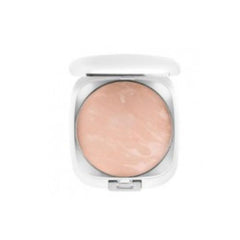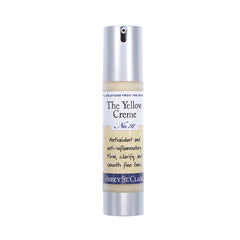Hidden Ways You May Be Increasing Your Risk of Sun-Damaged Skin

Balmy and lazy days of spring have morphed into hot and lazy days of summer. Summer equals outdoors. We gravitate to sunshine but, unfortunately, overexposure wreaks havoc on our skin and hair. Read on to learn more about the types of damage caused by too much sunshine, unexpected factors that can increase the risk of damage, and suggested skincare tips to naturally heal your sun-damaged skin and hair.
What’s Wrong With Sunshine?
Spending time outside benefits our health, mood, and well-being. It is important to realize that daily doses of sunshine are needed for our skin to manufacture Vitamin D, critical in the absorption of calcium for healthy bones and a strong immune system. Ten minutes a day is sufficient for this purpose. But really now, outdoor activities are measured in hours, not minutes, and it is this prolonged exposure to summer’s intense sunlight that can quickly lead to damaged skin and hair. Some of the negative consequences of sun damage include:
- Reduced skin elasticity, which leads to premature aging.
- Excess melanin production that creates dark skin spots.
- Sunburn, caused when UV rays penetrate into the deep layers of skin and damage or kill skin cells.
- Skin cancer, which can result from frequent and prolonged exposure.
- Damage to the outside cover of hair strands (aka the cuticle) and hair protein (aka keratin) by UVA and UVB rays. Too much sun acts like bleach, and signs of sun-damaged hair include discoloration, brittle and dry strands, split ends, thinning, and frizziness.
Clearly, too much of a good thing isn’t good for you. To add insult to injury, the amount of time you spend outside isn’t the only factor that puts your hair and skin at risk. There are other factors that increase your chances of sunburn and sun damage that are not so obvious.
11 Surprising Things that May Worsen Sun Damage
You already know about the standard ways to prevent sun damage, such as wearing a hat and minimizing the amount of time that you are exposed to direct sunlight. Here are a few lesser-known things that can increase the risk of sun damage to your skin and hair.
- During times of prolonged sun exposure, intense Vitamin A treatments should not be used during the daytime because some people will experience increased sensitivity to UVA and UVB rays. While Vitamin A continues to be one of the most effective anti-aging and acne repair ingredients, use it as a part of your night protocol and avoid application in the morning.
- Fragrances in your perfume and beauty products can make your skin more sensitive to sunlight. Some of the top fragrance offenders are lavender, cedar, bergamot, rosemary, and sandalwood, which may increase your likelihood of a sunburn. If you can’t skip your favorite fragrance, try spraying it onto fabric instead of skin. Note: This is the perfect time to use gentle hydrosols. Obtain a light fragrance without exacerbating sensitivity.
- Certain medicines such as antidepressants, antihistamines, antibiotics, antifungals, and oral acne drugs can cause heightened photosensitivity. If you take any of these medicines, be sure to take extra precautions to limit your exposure to damaging sun rays.
- Indirect sunlight can also be a problem. If you spend a lot of time driving, or sitting near a window indoors, you might unknowingly be subjecting your skin and hair to UVA damage. Keep sunscreen handy on long drives, and consider shuffling the furniture in your cubicle or home office to avoid constant exposure.
- Certain vitamin deficiencies, such as niacin (Vitamin B3), can increase your sensitivity to the sun. Try snacking on peanuts, fortified grains, and even mushrooms to supplement this useful vitamin!
- A weakened immune system, including some conditions and immunosuppressive therapies, can increase your risk of sun damage and skin cancer.
- Inadequate sunscreen usage, such as putting sunscreen on only when it's sunny, is a common mistake that leads to damaged skin. You can still get sunburned on a cool or cloudy day, especially between 11:00am and 3:00pm when the sun’s rays are the strongest.
- Forgetting to reapply sunscreen every 2 hours, especially after sweating or swimming, will leave your skin vulnerable. Keep a tube of sunscreen next to your towel or water bottle as a reminder to reapply.
- Applying sunscreen when you are already outside greatly increases your risk of sun damage. You should apply sunscreen at least 30 minutes before leaving the indoors, so there’s plenty of time for it to soak in before you step into the sunlight.
- We frequently skip the SPF balm on our lips, which have very thin skin and can easily suffer sunburns. Don't forget to slather on some lip balm with SPF before heading outside.
- Morning exfoliation may be part of your usual skincare routine, but it sloughs off dead skin cells that provide a protective barrier to the vulnerable skin below. Try to exfoliate at the end of the day, and leave an extra shield in place to protect your skin from sun damage.
Natural Treatments for Sun-Damaged Skin and Hair
By the middle of the peak summer months, your skin and hair will likely be in need of sun-damage repair. Numerous treatments exist on the market, but many have powerful toxins that you don't want to add to your body.
As with cosmetics, “sun repair” products from the big name-brand companies are often stuffed with fillers, synthetic materials, and artificial ingredients.
The best thing to do is seek natural healing for your sun-damaged skin and hair. Although there is no such thing as a “quick-fix,” there are many ways you can fight the effects of sun damage while repairing and nourishing your skin.
Abbey St. Clare offers a range of products to help you protect your skin, as well as to reduce the effects of sun damage and discoloration.
- Yarrow Hydrosol is almost instantly calming for sensitive or distressed skin. If you’ve suffered a sunburn, mist and massage this gentle spray onto the area to stop itching and discomfort, while it relaxes you with an herbal botanical aroma. Additional helpful hydrosols include lavender and helichrysum for repair, and Mint3 for its cooling effect.
- Sun-damaged skin is more prone to fine lines and wrinkles, but you can quickly improve your skin’s appearance with 100% Natural Emu Oil. This rich emollient soaks into your skin for deep hydration and natural treatment against the effects of sun damage. Also, work a bit of emu oil through your hair before sun exposure for protection, or anytime after, to add natural moisture to dry strands.
- Green Tea Scruff Exfoliating Cleanser provides a gentle resurfacing treatment with professional results at a fraction of the cost. It reduces the appearance of sun damage and scarring by deep-cleaning, smoothing the skin’s surface, minimizing fine lines and wrinkles, and decreasing pore size, leaving you with rejuvenated and youthful-looking skin.
- Before you head out each day, apply a layer of Mineral Sheer Tint Foundation. The sensitive skin around your face will be protected with SPF 20 in an oil-free formula that evens skin tone and reduces shine. Vitamins and botanical extracts nourish your skin naturally, while the mineral pigments diffuse light and minimize the appearance of fine lines and wrinkles. Similarly, for dry skin, apply BB Cream (SPF30).
- Use any of the Abbey St. Clare hair conditioners on dry hair before or after sun exposure for protection and repair. And if you want to add some natural highlights, sun-dry your hair after using Chamomile Shampoo and Chamomile Leave-In Conditioner. Similarly, a little Chamomile Conditioner worked through dry hair will encourage lovely “sunlights.”
During these sunny summer months, take extra care to protect yourself from damaging UVA and UVB rays. Enjoy the time you spend outdoors, but keep in mind the many unexpected factors that may increase your risk of sun damage. Trust Abbey St. Clare for natural treatments to help you heal and repair sun-damaged skin and hair, and for protection that will enable you to enjoy the sunshine all summer long!
Leave a comment
Comments will be approved before showing up.
Also in Abbey St Clare Blog

The Wheel is Turning. Abbey St. Clare has Closed.
Hello Friends,
The wheel is turning. Transitions are on the horizon. It is with regret that after almost twenty years, Abbey St. Clare is winding down as retirement and a relocation take place in the near future. We will continue taking orders through September 15.

Fix These 5 Hair-Washing Mistakes For Healthier Hair
Is your hair feeling brittle? Scalp dry? Locks not as lustrous as you want them to be? It’s possible you’re damaging your hair with five hair-washing mistakes.
If you follow these guidelines, you will see significant improvement in your hair and scalp health.

Pamper Your Skin and Elevate Your Mood With Essential Oils
Have you ever caught a whiff of cinnamon and felt a boost in your mood instantly? Do you feel calmer and more at ease when using lavender lotion before bed? If you said yes, it’s not just a figment of your imagination!
Ask anybody who uses essential oils regularly, and they’ll probably agree: these natural botanicals can have powerful, positive effects on your mood and overall wellness.



